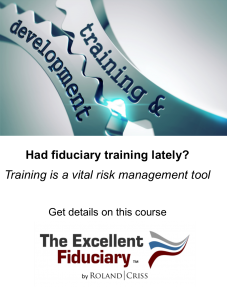Lawsuits against higher education institutions (“HEI”) raise questions that every organization sponsoring a qualified retirement plan should be ready to answer.

A timely opportunity exists for leaders in both the 403(b) plan and 401(k) plan sectors to examine some of these “hidden issues” to consider whether an upgrade of their risk management systems is warranted.
What the lawsuits reveal
An examination of the class action lawsuits filed against ten prominent HEIs such as Vanderbilt, Yale, Cornell, and John Hopkins reveals a repeated allegation that the faculty and staff who participate in the HEI’s 403(b) plans pay excessive fees for investment and administrative services. The underlying theme of that allegation charges executives and managers who hire the plans’ service providers with insufficient oversight and breaches of their ERISA fiduciary duty.
Hidden beneath the excessive fee complaint, however, are several risk issues that are consistently found to exist in our firm’s audits of fiduciary management systems.
- Key personnel who are distracted from ERISA fiduciary consciousness due to the volume of transactions generated by routine payroll and employee benefits programs tasks;
- Institutional behaviors that delegate procurement of benefit plan services to insufficiently trained individuals, thus allowing vendors to gain a significant information advantage over their plan sponsor clients and distort services and fees in their own favor;
- Methods for measuring regulatory compliance that are unsupported by relevant internal controls;
- Too infrequent assessments of alignment with specific ERISA compliance internal controls;
- High tolerance of sub-par vendor performance and the risk to the organization;
- A lack of understanding of how plan costs can accelerate and the risks to plan participants over time; and
- Assumptions that interventions in key fiduciary duty-related deficiencies were the responsibility of an investment or administrative support services provider.
Focus on internal controls
The complexity of the role of retirement plan sponsor has only increased in recent years. Organizations that sponsor 403(b) and 40(k) plans, however, can learn important lessons about where internal controls need to be installed or upgraded based on the complaints filed in each of the recent cases mentioned in this article.
For those plan sponsors seeking to excel in their role and safeguard their plan participants’ assets, an outsourced fiduciary advisor who can put in place an internal controls framework can be a worthwhile (if not relatively inexpensive) investment.
An effective fiduciary governance, risk, and compliance management solution can serve the retirement plan, its plan managers, and its employees well into the future by reducing fiduciary risk, and – perhaps most importantly – creating assured peace of mind.
Our Risk Practice Group helps clients develop, install, and monitor effective fiduciary internal controls frameworks.




